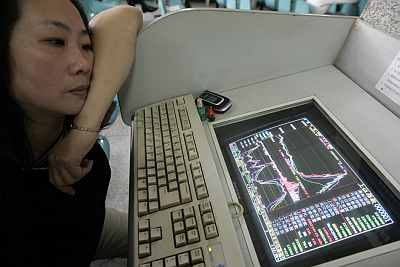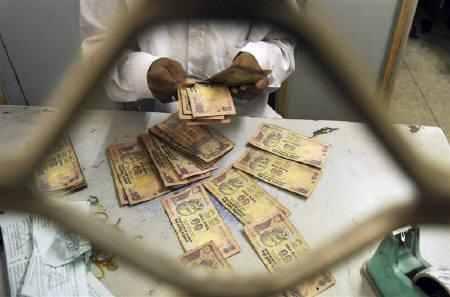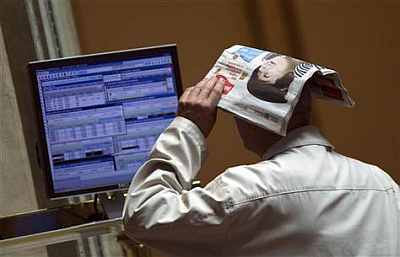
Foreign investors in the Coal India (CIL) initial public offer (IPO) are staring at losses. The IPO was India's largest and one of the most successful IPOs in recent times. What would have been unthinkable until recently is now imminent, as the rupee continues its slide against the greenback.
In October-November 2010, when the Union government sold its shares in the miner, some 484 foreign institutional investors (FIIs) picked a little over 209 million shares at the offer price of Rs 245 apiece. At the prevailing exchange rate of Rs 44.36 a dollar, each Coal India share was worth $5.52.
On Tuesday, though the shares are quoting at Rs 305.90 or 25 per cent higher in rupee terms, the currency fall has wiped all these gains for overseas investors.
...

If the FIIs were to sell shares at on Tuesday's exchange rate of 55.40, each Coal India share would fetch roughly $5.52. Any further fall in the stock price or the currency could drag the investment into the red.
G Pradeep Kumar, chief executive officer, Union KBC Asset Management, says this is a reflection of what is happening in the broader market. "Coal India is not an isolated case. Whoever had invested in the first quarter (of 2012) would be nervous. The rupee volatility has come on top of market volatility."
Coal India is not alone. In dollar terms, several Indian stocks have never been cheaper in the past five years, not even when the Sensex was trading below the 9,000 mark in March 2009.
...

The rupee's race past the 55 mark has made several stocks dip to their cheapest prices in five years or hit five-year lows, in market jargon, even though the index is trading nearly double of the lows after the global crisis that followed the Lehman Brothers collapse.
At least two dozen stocks, including a number of large-caps, are flirting with their five-year lows, when priced in US dollars.
Of these, 10 stocks are already below their five-year-lows in dollar prices. The remaining have closed at less than one per cent above this level.
...

The stocks that have already breached their five-year lows in dollar terms, but are much above that level in the local currency, include public sector stocks such as BHEL, OIL, SJVN and private sector firms such as Mahindra Holidays, India Cements and Gujarat Pipavav Port.
According to an analysis by BS Research Bureau, at least 60 stocks are trading within 10 per cent of their five-year lows in dollar terms.
As analysts predict further weakness in the rupee, some of these stocks could be dragged below the dollar five-year low.
...

Anindya Banerjee, senior manager, currency derivatives research desk, Kotak Securities, says, "Over the near term, we expect the rupee to remain volatile as further sovereign measures can be anticipated but could be absorbed by a negative stream of news flow from the euro zone."
FIIs have been net sellers in Indian equities over the past few sessions, putting further pressure on stock prices and the currency. FIIs have been net sellers in four of the past five sessions.
Kumar of Union KBC says, "The currency market is going through one of its worst phases. Naturally, foreign investors would be wary of committing capital. They seem to have a higher risk perception and it is difficult to expect them to commit any reasonable amount unless the volatility subsides."